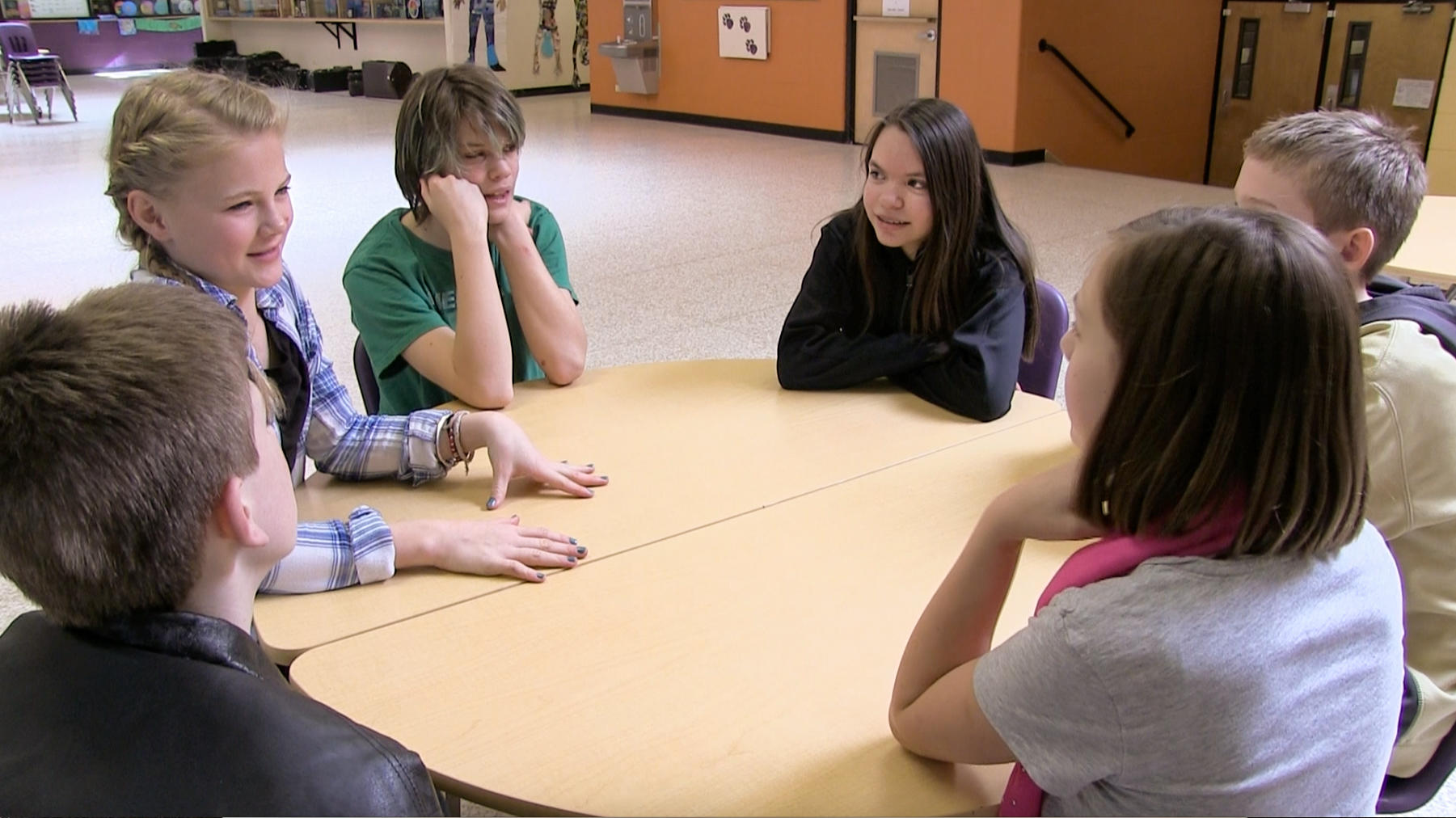School-based Programs
Supportive Spaces for Youth
Estes Valley Restorative Justice Partnership and the Estes Park School District have developed a partnership to provide students with safe spaces to discuss difficult topics, address common concerns and challenges, learn skills and pursue personally meaningful goals. While encouraging good decision making, healthy relationships and resilience, each program contributes to keeping students in school through graduation and preventing involvement in the criminal justice system.


Living Room Conversations
I understand more
"I felt as though I understand more how other people feel as though they belong, and how I can help them feel like they belong more."
-Living Room Conversation youth participant
My biggest takeaway...
"I think my biggest take away was how we all experience the same problems differently and are still able to admit that there is a wider problem encompassing our individual experiences."
- Living Room Conversation youth participant
Living Room Conversations is a model for dialogue that facilitates connection and understanding. Through small group guided conversations, participants find common ground and acknowledge differences through conversation centered on personal experiences.
Conversation topics vary and are supported by conversation guides that invite diversity of perspective and experience. Learn more about the Living Room Conversations model.
School-based Living Room Conversations (LRCs) are offered primarily at the high school during the school day. Topics are selected based on student and staff input and requests. LRCs can occur as part of a class experience or during non-structured school time (e.g. advisory, lunch, etc.). LRCs are led and facilitated by staff and volunteers, and supported by Living Room Conversations' model for dialogue and structured conversation guides.
- Participants have equal opportunity to share and be heard
- Participants learn about common experiences as well those that are different from their own
- Encourages curiosity and welcomes diverse perspectives
- Fosters connection points within the school community
Student Support & Accountability Circles
The group became like family...
“Our Core Student had many strikes against her as she was re-entering school following a significant absence. Though she was a bit reluctant at first, the group became like family, with each person playing an integral role. Our Core Student finished strong and is well on her way toward graduating on time!”
- Student Support and Accountability Circle member
I loved this group
"I loved this group and working with such loving and caring people."
-Student Support & Accountability Circles core member
Student Support and Accountability Circles provide support, encouragement and accountability for students who may benefit from additional assistance during the school day. The goal is to enable the core member student to become success in school and out, with a focus on the following: school functioning, relationships and wellness.
Student Support and Accountability Circles (SSAC) are designed to provide support and accountability to students through the use of the restorative principles of respect, responsibility, relationships, repair and reintegration. The SSAC is made up of 6 people who are invested in assisting a Core Student in becoming successful in school and out, and include the Core Student, peer support, school staff representative, two trained circle keepers and a community member.
Prior to the start of circle, an asset survey is conducted with the Core Student in order to help identify and select appropriate circle participants. The group comes together weekly for one-hour meetings during the school day, typically for a semester or school year.
Each week, all of the circle members agree to complete assignments that ensure individual progress in one or more of the three focus areas. This provides a spirit of equity and models that personal growth can occur in all stages of life.
- Participants build positive relationships with peers and adults in the community
- Connects students with resources and acts as a source of additional support and encouragement
- Participant experience increased connection with peers, school staff and community
- Safe space to problem-solve and explore successes and challenges
- Participants are more likely to engage with school, graduate and avoid contact with the criminal justice system